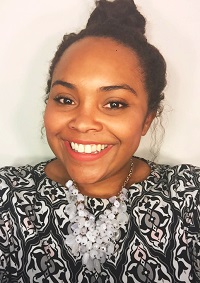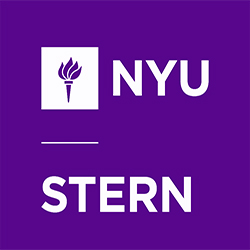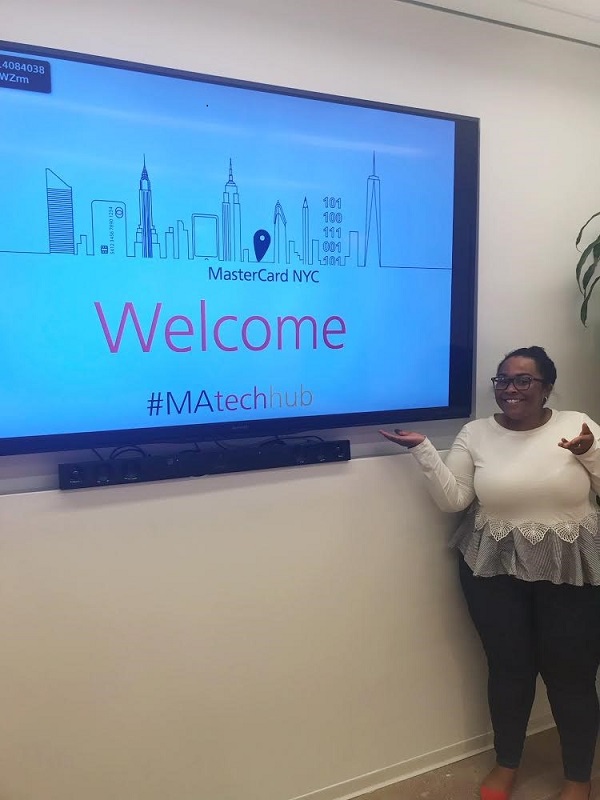 Jasmine Reliford is a rising MBA2 interning at Mastercard this summer. She is a Consortium Fellow, serves on the Community Service Committee within Stern Student Government (SGov), and is the VP of Admissions for the Social Impact and Sustainability Association (SISA) and the VP of Corporate Relations for the Association of Hispanic and Black Business Students (AHBBS).
Jasmine Reliford is a rising MBA2 interning at Mastercard this summer. She is a Consortium Fellow, serves on the Community Service Committee within Stern Student Government (SGov), and is the VP of Admissions for the Social Impact and Sustainability Association (SISA) and the VP of Corporate Relations for the Association of Hispanic and Black Business Students (AHBBS).
NYU Stern’s “Summer Internship Series” sheds light into Sternies’ internship experiences. Posts are written by rising MBA2s who are currently working at their summer internship.
Once a Girl Scout, Always a Girl Scout
For as long as I can remember, I have been driven by the force to do “good”. This drive comes from my 12 years as a Girl Scout—there are stories my mom could tell you of kindergarten Jasmine boxing up her Christmas gifts and birthday presents to donate them to the children’s hospital or the homeless shelter (a tendency that I continue to this day). This innate drive to change the world around me is all consuming, yet has evolved over time. I have become more sophisticated and tactical in how I hope to enact change in the world.
It is estimated that it will cost up to $70 Trillion to achieve the Sustainability Development Goals (SDGs) set by the UN. The capital throughout the private and government sector far surpasses that of the social sector. A social impact person going to a top finance program always results in a “oh that’s interesting…” from those who do not understand the ethos of Stern or how businesses are evolving.
Learning How to Disrupt the Social Impact Business Models
In my Stern application, I spoke of the allocation of capital and how it effects mobility out of poverty, access to healthcare and education, and so many more other causes I am passionate about. The landscape of how players are engaging with the communities they operate in is changing; defining CSR initiatives such that they are integrated into bottom line results is top of mind for a lot of corporations. Balancing altruism and monetization could be viewed as opposing philosophies, but learning how to meld them into a cohesive strategy is why I chose Stern.
A social mindset is instilled in you the first week of LAUNCH—former investment bankers, consultants, and marketers rally to determine a sustainable business solution that solves a societal need. This push to think creatively towards not only business issues but world issues is the embodiment of Stern. The products and business models that are emerging are shifting the way businesses, governments and society all come together to uplift every facet of humanity. When I see innovations such as Rent the Runway and Lyft, I see disruptors forcing their industries to move towards sustainable fashion and how to provide gig workers a way to engage in commerce in a way never done before. Stern is a space where ideas come together to create the future world around us.
Doing Well by Doing Good
I chose Mastercard for my internship because of my background in payments, the Stern network throughout the firm, and, most importantly, because of their commitment to financial inclusion. They have dedicated resources and expertise on focusing on how to bring the poorest people around the world into the economy through payment systems, blockchain solutions, healthcare innovations, and startup capital. An EVP, and Stern Alum, once described the CEO as a “social justice warrior working in the private sector”. Between that description and a Mastercard campaign with Beyoncé, I was sold for my summer internship.
Few for-profit organizations have integrated social considerations in to their strategy so intricately. For Mastercard, doing well by doing good is more than a tagline, it is literally a way of life for small (or micro) merchants and entrepreneurs who historically had challenges accessing capital and engaging in commerce; you cannot capitalize on the internet of everything if the financial system does not include everyone.
Mastercard is among the leading firms to merge altruism within their business model. I am grateful I get to intern for a company that is continuing to innovate in a way that this former Girl Scout can get behind. The leadership of Mastercard believes doing well by doing good is the future of business—and it is.
Read More on What Mastercard Does in the Financial Inclusion Space

